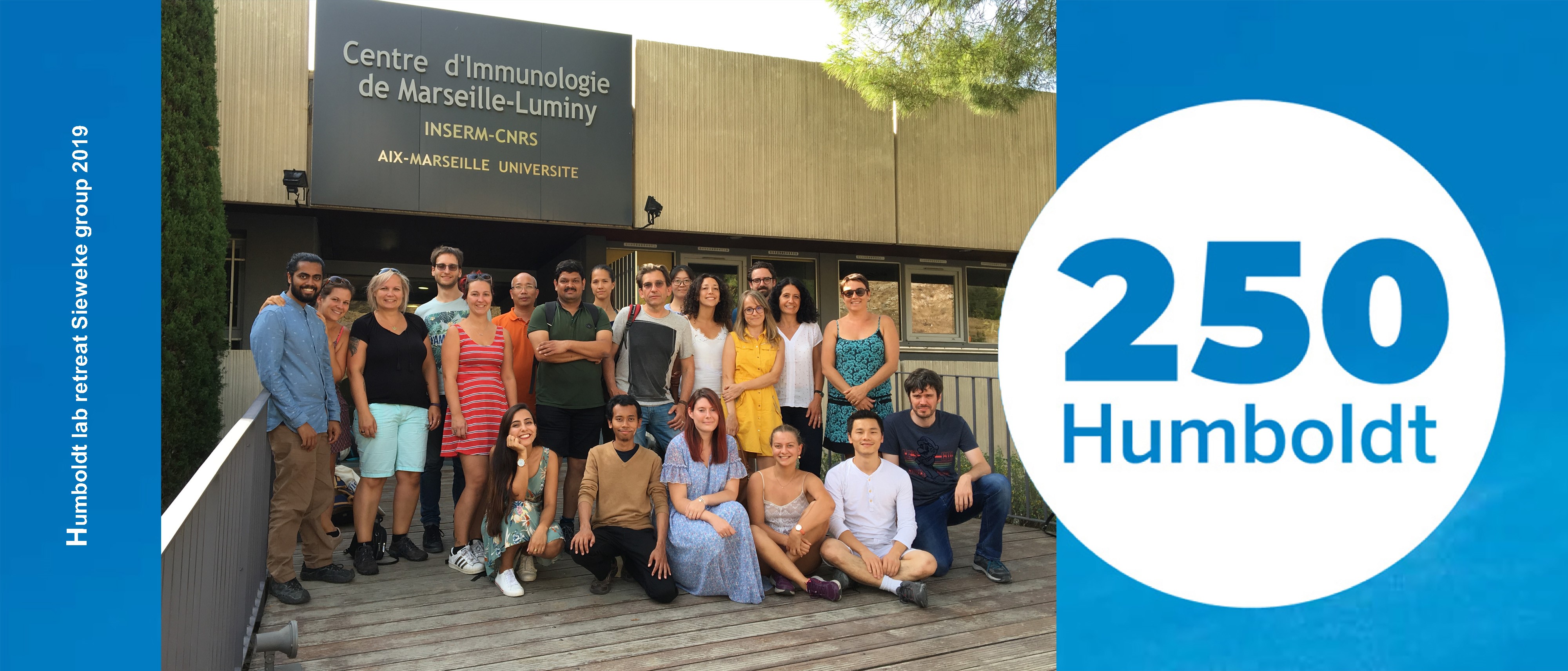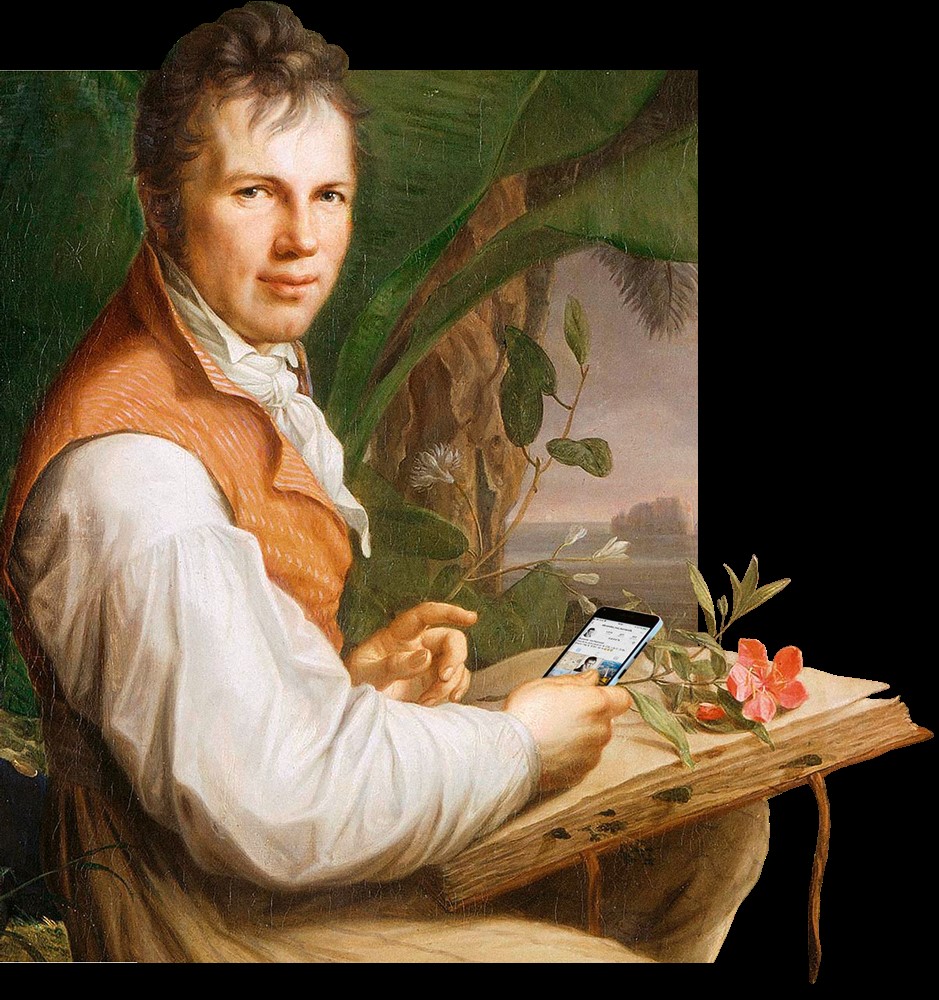On September 14, 1769, Alexander von Humboldt was born – just 250 years ago.
On the occasion, the Sieweke lab held a dedicated lab retreat at CIML. Humboldt-Professor and CIML group leader Michael Sieweke reflects on the great discoverer and pioneer of Franco-German research cooperation.

The research teams of Michael SIEWEKE, French and German, meet for a retreat at the CIML on October 14, 2019. Copyright: Michael Sieweke / Michaela Burkon
Who was Alexander von Humboldt? What if he was a researcher today, in 2019? He was a marketing genius. A networker who never stopped writing letters. He held lectures for a wide audience. He took a stand on slavery, colonialism and environmental destruction. He is known as an explorer of Latin America and Siberia, and developed close personal and professional ties to France, for example in long collaborations with the botanist Aimé Bonpland or the chemist and physiscist Joseph Gay-Lussac.
The Sieweke group celebrated 250 years of Humboldt their own way with a dedicated retreat at CIML, bringing together Dresden and Marseille labs.
How modern and how relevant is Alexander von Humboldt today, 250 years after his birth? Find personal answers to the question: HERE, dedicated articles in Nature press, HERE, or discussion of a graphic novel, HERE
As winner of a Humboldt Professorship, Prof. Michael SIEWEKE of the CRTD, TUD Dresden, and group leader at CIML also commented on the topic "Humboldt means to me today...": HERE
"Alexander von Humboldt has combined his love of nature with a strong thirst for knowledge, regardless of whether he has bent over to a small moss or climbed the highest mountain. The will to understand things, the joy to see a connection, as Alexander von Humboldt has often described it, can still be experienced by a scientist today”, states Prof. Michael Sieweke.
“At the CRTD in Dresden we are investigating one of the great wonders of biology: regeneration, and we know that the immune cells we study at CIML play a big role. We are looking at the interplay of cells and, with that, we are with Humboldt, who has always addressed the interconnections in nature. Alexander von Humboldt is also a very personal role model for me. He was a true cosmopolitan and at home in France and Germany alike, he published many works in French, lived in France for many years and maintained a close network with French colleagues. Even in times of political tension or even war, he managed to maintain this scientific collaboration. Today, this is an incentive to promote cooperation between France and Germany, and across Europe under far more favourable conditions."
Contacts:
Pr Michael SIEWEKE, DR CNRS
Centre d'Immunologie de Marseille-Luminy
Team leader of the Stem cell and macrophage biology Group
Email : here
CRDT, TUD Dresden
Team leader of the Stem cell and macrophage biology Group
Email : here


